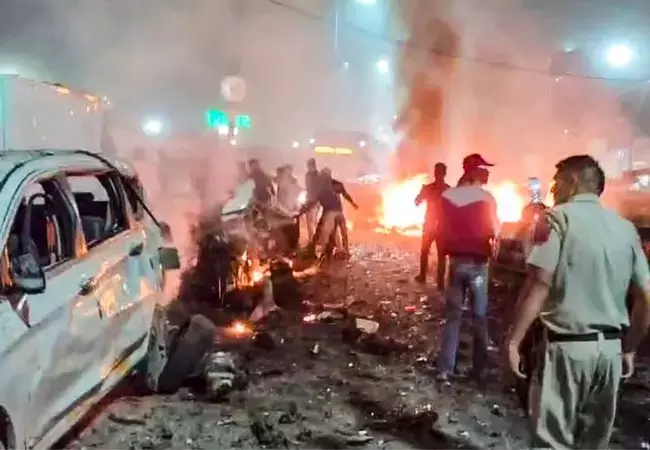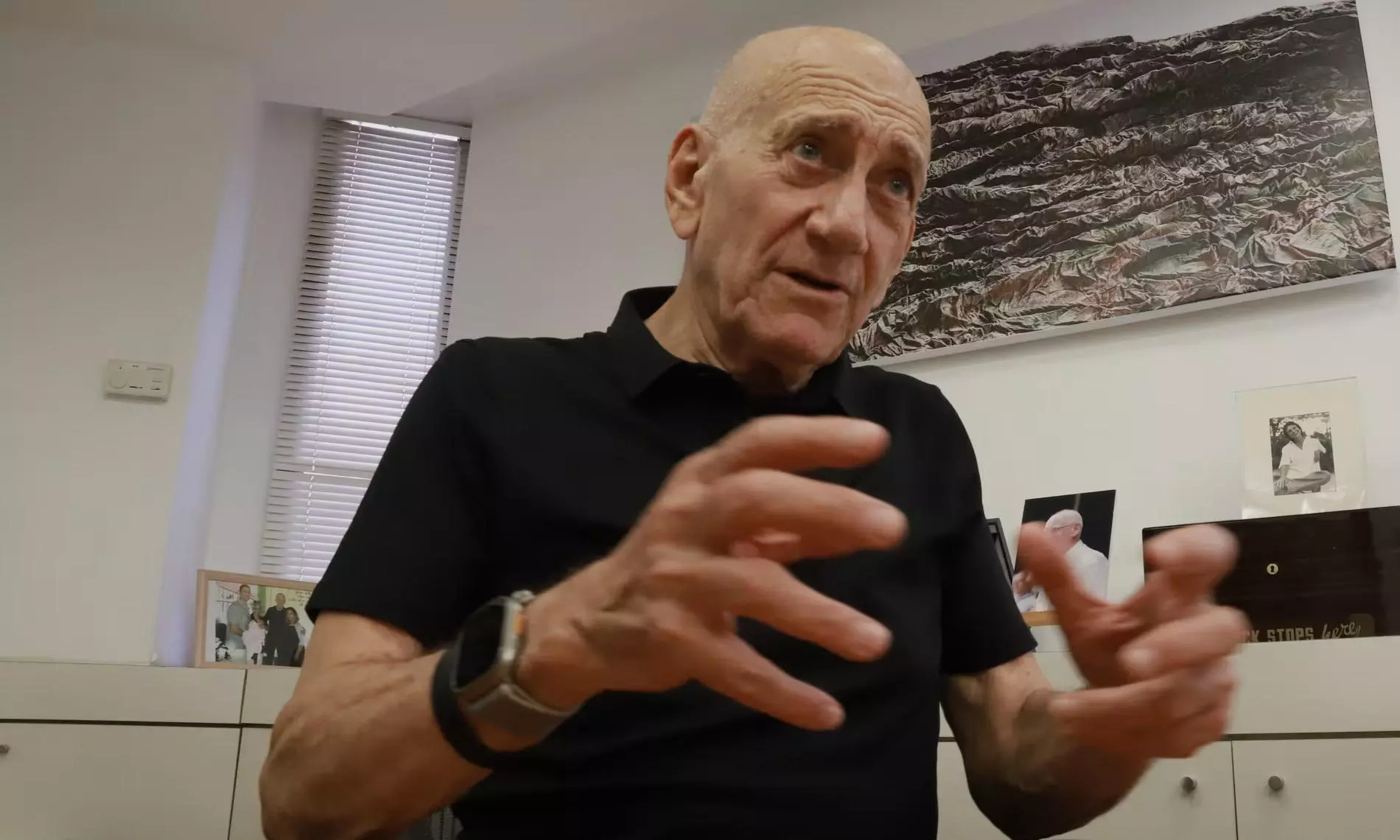
Ex-Israeli PM says two-state solution achievable, calls ‘humanitarian city’ a concentration camp
text_fieldsFormer Israeli Prime Minister Ehud Olmert believes in a two-state solution to the ongoing conflict between Palestine and Israel, viewing it as a path to normalise ties with Saudi Arabia and other Arab countries in the region, while warning that Israel’s proposal to push Palestinians from Gaza into a so-called 'humanitarian city' on the ruins of Rafah would amount to a concentration camp with no freedom within.
He also believes that an end to the war in Gaza could still pave the way for normalised ties with Saudi Arabia, but lamented that such a prospect is unlikely under Netanyahu’s leadership, especially as the prime minister, who faces an international arrest warrant, recently nominated Donald Trump for the Nobel peace prize.
Olmert has condemned his country’s proposed construction of a so-called “humanitarian city” on the ruins of Rafah, warning that it would function as a concentration camp and that forcing Palestinians into it would constitute ethnic cleansing.
While asserting that the controversial plan, spearheaded by Defence Minister Israel Katz and backed by Prime Minister Benjamin Netanyahu, has not yet materialised, Olmert said its implementation would mark a severe escalation in Israel’s ongoing military campaign in Gaza, according to The Guardian.
According to the proposed blueprint, the military has been instructed to draw up plans to construct a large encampment on the ruins of southern Gaza, initially meant to house 600,000 displaced Palestinians and eventually absorb the entire population of Gaza.
Olmert suggested that once Palestinians are placed inside such a camp, with limited or no freedom to leave except to immigrate to other countries, it would be tantamount to an act of forced displacement. Though he stopped short of describing Israel’s current actions in Gaza and the West Bank as ethnic cleansing, he stated that the construction of such a camp would inevitably be interpreted as such.
Olmert accused the Israeli government of already committing war crimes in both Gaza and the West Bank, and said that recent actions, including violent settler attacks on Palestinian communities, have been carried out with near-total impunity and official backing.
He highlighted the killing of two Palestinian men, one of whom was an American citizen, as part of an ongoing campaign of settler violence that has forced many villagers to flee their homes. He blamed Israeli authorities for enabling these acts through inaction and tacit support, and said the perpetrators operated under an organised structure rather than as isolated extremists.
He described senior cabinet ministers, who have openly supported settlement expansions and calls for population removal, as a greater threat to Israel’s security than any external actor. These internal threats, according to Olmert, have fuelled international outrage and growing anti-Israel sentiment that cannot be dismissed solely as antisemitism.
He argued that much of the anger abroad stems from the images of devastation broadcast from Gaza and the West Bank, and that Israeli society will only begin to change once it faces meaningful international pressure.
Olmert acknowledged that he had initially supported the military campaign following Hamas’s 7 October 2023 attacks, but said the government’s abandonment of ceasefire negotiations by spring led him to conclude that war crimes were being committed. While he did not believe commanders issued direct orders to kill civilians, he accused the military of tolerating operations that predictably caused mass civilian deaths, which he attributed to negligence and indifference rather than explicit intent.
Despite the worsening humanitarian crisis, Olmert expressed hope that a two-state solution remains achievable and is working with former Palestinian foreign minister Nasser al-Kidwa to promote it.
























